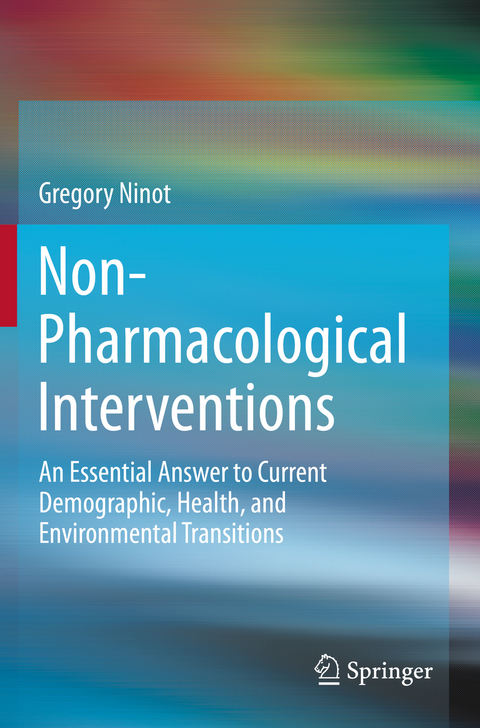
Non-Pharmacological Interventions
Springer International Publishing (Verlag)
978-3-030-60973-3 (ISBN)
Topics explored among the chapters include:
· Defining Non-Pharmacological Interventions
· The Benefits and Dangers of Non-Pharmacological Interventions
· Motives and Facilitators of Non-Pharmacological Intervention Use
· The Market for Non-Pharmacological Interventions
· Evaluation of Non-Pharmacological Interventions· The Future of Non-Pharmacological Interventions
Non-Pharmacological Interventions: An Essential Answer to Current Demographic, Health, and Environmental Transitions is a must-have resource for clinicians and other health professionals, researchers, students, health insurers,policy-makers, caregivers, and entrepreneurs in the health and wellness space, as well as any users who wish to inform themselves about NPIs.
lt;p>Gregory Ninot, PhD, is full professor at the University of Montpellier and at the Montpellier Cancer Institute in France. He has followed a dual curriculum in sports sciences (Master's, PhD) and psychology (Master's, PhD) applied to health. Since 1999, his basic research has focused on integrated models explaining psychological and behavioral adjustment to chronic disease and healthy aging. His applied research focuses on assessing the benefits, risks, and cost-effectiveness of non-pharmacological interventions (NPIs). He is the author of more than 150 articles in international scientific and medical journals and 11 books. He has led several multidisciplinary academic research units interested in health issues. He founded and currently manages a University collaborative platform, the Plateforme CEPS; organizes an annual international conference (iCEPS Conference, www.icepsconference.fr); and develops digital tools (e.g., www.motrial.fr, www.nishare.fr, www.niri.fr) to improve NPI assessment and evidence-based practices. Since 2014, he has run a blog on NPIs (www.blogensante.fr/en/).
Preface.- Chapter 1 - Definition of Non-Pharmacological Interventions (NPIs).- Chapter 2 - The Reasons for the Success of Non-Pharmacological Interventions.- Chapter 3 - Mechanisms Involved in Non-Pharmacological Interventions.- Chapter 4 - The Benefits of Non-Pharmacological Interventions.- Chapter 5 - The Dangers of Non-Pharmacological Interventions.- Chapter 6 - Motives and Facilitators of Non-Pharmacological Intervention Use.- Chapter 7 - The Market for Non-Pharmacological Interventions.- Chapter 8 - Evaluation of Non-Pharmacological Interventions.- Chapter 9 - The Future of Non-Pharmacological Interventions.- Chapter 10 - Conclusion.- Appendix: Useful Websites.
| Erscheinungsdatum | 30.11.2021 |
|---|---|
| Zusatzinfo | XXIII, 294 p. 29 illus., 24 illus. in color. |
| Verlagsort | Cham |
| Sprache | englisch |
| Maße | 155 x 235 mm |
| Gewicht | 492 g |
| Themenwelt | Medizin / Pharmazie ► Naturheilkunde |
| Schlagworte | Complementary and alternative medicine (CAM) • digital health interventions • ehealth • Evidence-based interventions • health education • Healthy Aging • Integrative Care • lifestyle and wellness • Natural Medicine • non-invasive interventions • Non-pharmacological interventions (NPIs) for human health • nutritional therapy and dietary supplements • Physical Activity • physical health interventions • physiotherapy • phytotherapy • psychological health interventions • psychotherapy • science-based interventions • Traditional medicine |
| ISBN-10 | 3-030-60973-1 / 3030609731 |
| ISBN-13 | 978-3-030-60973-3 / 9783030609733 |
| Zustand | Neuware |
| Haben Sie eine Frage zum Produkt? |
aus dem Bereich


